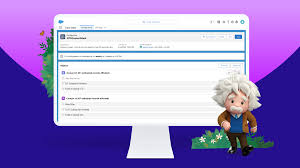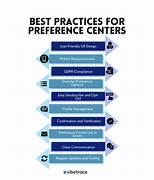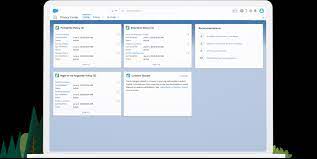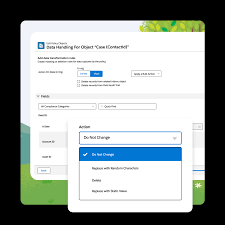Building Trusted AI
Building Trusted AI: A Roadmap for IT Leaders AI is revolutionizing how organizations operate, fueling workflows, creativity, and innovation at unprecedented levels. It’s no surprise that nearly 70% of senior IT leaders now consider AI a top business priority. But with great potential comes great responsibility. AI introduces challenges around trust, security, and ethics, extending far beyond today’s implementations. To fully harness AI’s power—while ensuring transparency and security—IT leaders must take a structured, responsible approach. Here are five key steps to maximize AI’s potential without compromising trust. Step 1: Build AI on a Foundation of Quality Data AI is only as good as the data it’s built on. Generative AI models rely on vast datasets to generate meaningful outputs—but poor-quality data can lead to bias, irrelevance, or even harmful results. To ensure data integrity:✔ Diversify data sources to reflect different perspectives, scenarios, and contexts, reducing bias.✔ Clean and normalize data to minimize noise and ensure consistent quality.✔ Use tools like Privacy Center to manage data across multiple sources and eliminate duplicates.✔ Continuously refine datasets to stay aligned with evolving trends and insights. By prioritizing high-quality, well-managed data, organizations set a strong foundation for ethical and reliable AI systems. Learn how AI works and how to use it responsibly on Trailhead, Salesforce’s free learning platform. Step 2: Define Ethical Boundaries and Strengthen Data Privacy Trust is built on respecting customer privacy and protecting sensitive data. With AI systems handling personally identifiable information (PII) and other confidential data, strong policies are essential. Key actions to prioritize AI ethics and privacy: 🔹 Adopt secure, compliant data handling from collection to storage (Privacy Center helps manage retention policies).🔹 Implement data minimization—collect only what’s needed and retain it only as long as necessary.🔹 Encrypt sensitive data and limit access to authorized personnel and systems.🔹 Form an ethical AI task force to oversee compliance and mitigate legal or reputational risks. Transparency in data collection and usage builds trust and helps prevent misuse. Step 3: Conduct Regular AI Audits Even with ethical safeguards, AI can produce unintended biases, inaccuracies, or misinformation—especially in critical decision-making scenarios. A robust AI auditing strategy includes: ✔ Automated compliance checks to scan AI outputs against ethical standards and policies.✔ User feedback loops (surveys, interviews) to assess AI performance and its real-world impact.✔ Risk identification and mitigation—proactively addressing emerging challenges. Regular audits ensure AI remains accurate, fair, and aligned with business objectives. Step 4: Strengthen AI Security and Monitoring AI systems process valuable data, making security a top priority—especially in regulated industries. In response, governments worldwide, including the U.S. White House and the EU, are introducing policies for independent AI audits. How to protect AI systems: ✔ Define strict access controls to limit AI interactions to authorized users only.✔ Use tools like Security Center to manage user permissions and secure configurations.✔ Conduct ongoing security reviews (including penetration testing and quality control).✔ Enable Event Monitoring to set alerts or block unintended AI actions. By embedding security into every layer of AI processes, organizations can trust the AI they deploy. Step 5: Prioritize Transparency and Encourage Feedback A lack of transparency breeds distrust. In fact, only 42% of customers trusted businesses to use AI ethically in 2024—a 16% decline from the previous year. How to build AI transparency: 🔹 Clearly label AI-generated content so users know when AI is at work.🔹 Document AI processes to explain how data is collected, processed, and used.🔹 Disclose AI auditing and security measures to reinforce trust.🔹 Actively gather feedback to assess AI’s impact and align it with organizational values. Transparency isn’t just about compliance—it’s about building lasting trust with customers and stakeholders. Trusted AI is a Journey, Not a Destination Building trustworthy AI requires continuous effort—not just a one-time fix. Organizations must take a proactive approach to data quality, security, audits, and transparency. Platforms like Agentforce are designed to support responsible AI adoption—from policy creation to implementation—helping businesses innovate securely and ethically. By embedding trust into AI strategies today, businesses can lead with confidence tomorrow. Like Related Posts Salesforce OEM AppExchange Expanding its reach beyond CRM, Salesforce.com has launched a new service called AppExchange OEM Edition, aimed at non-CRM service providers. Read more The Salesforce Story In Marc Benioff’s own words How did salesforce.com grow from a start up in a rented apartment into the world’s Read more Salesforce Jigsaw Salesforce.com, a prominent figure in cloud computing, has finalized a deal to acquire Jigsaw, a wiki-style business contact database, for Read more Service Cloud with AI-Driven Intelligence Salesforce Enhances Service Cloud with AI-Driven Intelligence Engine Data science and analytics are rapidly becoming standard features in enterprise applications, Read more












